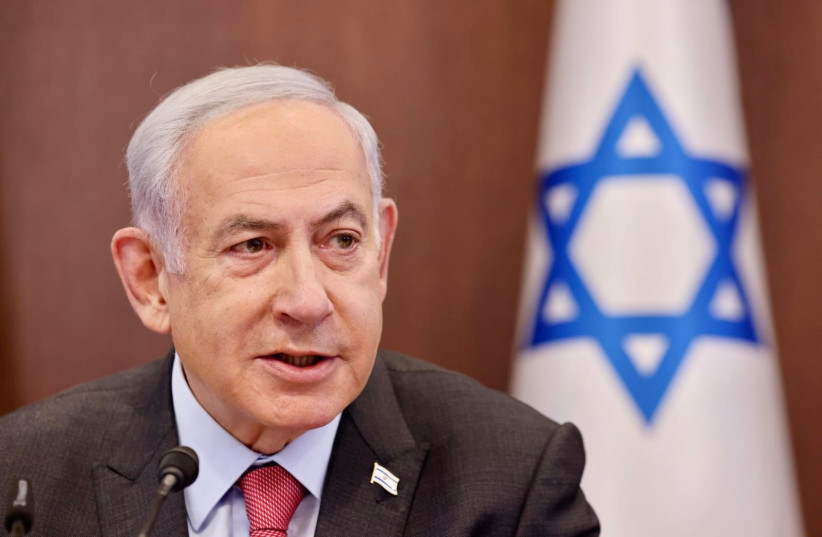As the holy month of Ramadan commences, the recent controversial remarks made by Israeli Finance Minister Bezalel Smotrich, denying the existence of a Palestinian people, and his speech behind a map showing Jordan as part of the Land of Israel, have sparked a surge of outrage among Arab countries with peace treaties with Israel.
There has been a rise of voices calling to terminate these agreements and expel Israeli ambassadors from respective countries. Alternatively, some have proposed downgrading diplomatic relations with Israel and avoiding meetings with high-ranking officials, such as ministers and Knesset members.
The Jordanian parliament has passed a resolution calling for the expulsion of the Israeli ambassador from the kingdom. However, the approval of King Abdullah II is required for this resolution to take effect, and it is currently uncertain whether the king will grant his consent due to his busy schedule.
The United Arab Emirates has expressed its concerns regarding the statements made by Smotrich and Ben-Gvir, as well as their intention to ascend the Temple Mount. To convey their position to Israel, the Emirates sent a senior adviser to President Mohammed bin Zayed to Jerusalem. The adviser made it clear that the UAE does not accept the words of senior members of the Israeli government and expressed surprise at Prime Minister Binyamin Netanyahu’s silence in response to statements that could potentially harm relations with important Arab countries.
Egypt has also taken a stance on the cancellation of the disengagement law in the West Bank and sent a harsh message to Netanyahu through its president. The message conveyed Egypt’s concerns about the announcement made by Netanyahu’s office after the cancellation of the law was approved, particularly regarding Smotrich’s words, which asserted that Jews have a historical right to the whole Land of Israel.

Revoking the West Bank disengagement a day after the Sharm el-Sheikh summit was viewed by Egypt with great severity. Cairo perceived the move as a disrespectful gesture toward its efforts, together with Amman, to achieve stability in the region.
Additionally, while expressing gratitude to Israeli President Isaac Herzog for his warm wishes for the month of Ramadan, the king of Morocco clarified that he had no interest in engaging in dialogue with Netanyahu. Furthermore, he denied Herzog’s request to visit his country at the end of Ramadan.
Israel's political standing
Israel’s current political standing in relation to Arab countries and friendly Islamic countries is at a low. Most leaders are reluctant to take calls from Netanyahu, and a considerable number of countries refuse to host Foreign Minister Eli Cohen for official visits. These countries claim that Cohen’s statements in Hebrew differ from his statements in Arabic and English on his official social media accounts, which has led to concerns regarding his credibility.
Furthermore, several countries have instructed their foreign ministries to lower the level of official meetings with Israel and instead focus on maintaining existing security and economic committees that handle commercial affairs and business relationships.
The recent developments suggest that senior Israeli officials’ statements are not well-considered and lack coordination with the Prime Minister’s Office. This has put Israeli emissaries in an awkward position, as their attempts to mitigate the situation have been unsuccessful. It appears that the lack of a cohesive and coordinated message from the Israeli government has created confusion and frustration among its partners in the international community.
Senior Arab officials have revealed that Jordan is currently leading an effort to coordinate the positions of Arab and Islamic countries that have diplomatic ties with Israel. The objective of this coordination is to impose a boycott on Israeli government ministers and officials until the Israeli government clarifies its stance on the Palestinian issue and demonstrates its commitment to respecting peace agreements and international commitments it has signed.
The United Arab Emirates has expressed deep concern over Israeli ministers’ recent statements that deny any possibility of dialogue and understanding, particularly remarks made by the finance minister regarding the erasure of the village of Huwara and the nonexistence of a Palestinian people. The Emiratis also condemn any actions that threaten the status quo in Jerusalem, particularly those led by Ben-Gvir.
While the UAE recently established the House of Abraham in Abu Dhabi as a symbol of interfaith understanding, it has faced criticism from other Islamic nations. It sees these Israeli actions as a betrayal of the spirit of the Abraham Accords, which are based on acceptance of the other and dialogue between religions in the Middle East.
The Israeli prime minister would be wise to heed the Emiratis when they call on Israel to reconsider its approach and respect the principles of peaceful coexistence and mutual respect between all peoples and religions.
Majdi Halabi is a senior reporter at Elaph.com who specializes in the Arabian Gulf and Israeli affairs.
